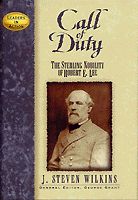
By Dr. Gary North
Retail Price: $5.95
Your Price: $1.49
Save: 75%
SKU: BKP-0980
Publisher: Inst. For Christian Economics
Paperback, 70 pages
About the Title: When the Puritans got off the Arabella and waded ashore to
The Pilgrims had been compelled by prior contract to set up a basically socialist system in 1620 - the common storehouse - and had come very close to starving as a result. They dropped this practice within two years, long before the arrival of their neighbors, the Puritans. The Puritans did not make the same mistake. But they made others: extensive publicly owned lands for grazing, controls on who was allowed to buy and sell land, price and wage controls, quality controls, public guilds and monopolies, and controls on people's fashions. They learned first-hand what government controls produce: conflict and shortages.
For almost half a century, the Puritans ran the experiment. They served as willing guineas pigs. Eventually, they learned. Anyway, their children learned. In 1675, the great Indian war broke out - King Philip's War. The politicians tightened controls on the economy, and it began to break down. By the time the war was over a year later, the Puritans had learned their lesson. They abolished economic controls for good, and the economy boomed.
This is a story of nearly half a century of Puritan experiments with government controls, all in the name of Christian ethics, and why those experiments were finally abandoned as a failure. The Puritans learned from experience. Not until the American Revolution broke out a century later did American colonists again attempt to impose a comparable system of economic controls, and the result of those controls was the near-starvation of
http://www.americanvision.com/puritaneconomicexperiments.aspx





























































1 comment:
Hmmm... Miss Regina, this has increased my impatience... I have ordered this book, and just got word it has been shipped. I look forward to reading it. I have also read Bradford's Of Plymouth Plantation, which chronicles the doings of the Pilgrims their first forty years or so here (and as well their journey to get here). Their experiment with socialism was, as you say, rather shortlived. Else they would have been as well, it seems! Making a strong connexion between what one's hand does day to day and what one's mouth gets in way of food is clearly biblical, and we sunder that connexion to our collective peril. Paul plainly commands that if a man WON"T work, neither should he eat. And he clearly demonstrated this with his own life. Enable one to get by without toil, and society, as well as the individual, are both destroyed.
Post a Comment